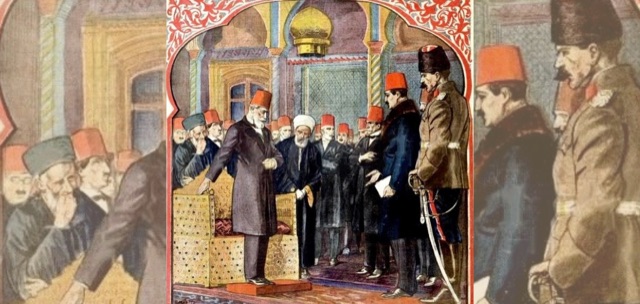
Saquib Salim/
Khilafah, Caliphate, Islamic Sate, Jihad and Darul Islam are a few terms which dominate the debate among Muslims on social media as well as at public forums.
Quite a considerable proportion of young Muslims, in India and elsewhere, believe that formation and maintenance of an Islamic State is a religious duty of all Muslims.
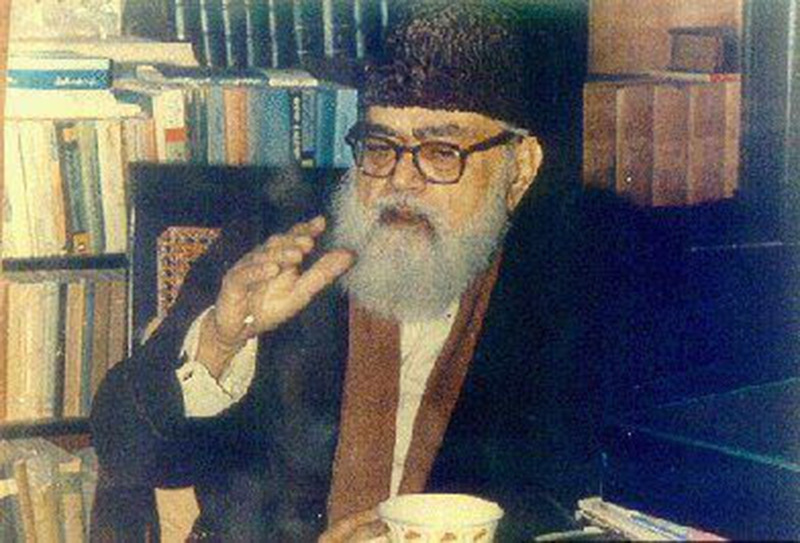
Abu Ala Maududi
Non Muslims also, because of these views expressed by a few, believe that Islam directs its followers to turn any nation they live in into an Islamic State governed by Sharia laws where non-Muslims will be forced to follow Islam. It leads to a belief that it is incumbent upon every Muslim to live in an Islamic State, and if they don’t live in one Jihad should be waged to turn the state into Islamic.
The idea that formation of Islamic State is incumbent upon Muslims and can be one of the basic tenets of Islam is neither theologically unchallenged nor historically correct. Muslims since after the Prophet Muhammad have been debating this aspect at length without any consensus.
The present thought of English educated Muslims across the world, who subscribe to the idea of establishment of Caliphate as a central tenet of Islam, is largely shaped by Muhammad Asad, Maulana Maududi, Hasan al-Banna, Kalim Siddique, Ayatollah Khomeini and such scholars.
In 20th century when Ottomon Turks faced defeat and Mustafa Kemal Ataturk replaced caliphate with secular democracy the anti colonial movements across the world used it to fan Muslim emotions against the European colonialism. In India, no less than Mahatma Gandhi led the movement to restore Calipahte.
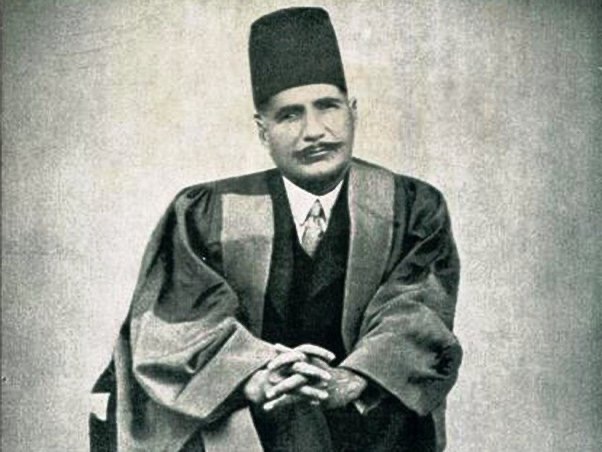
Allama Iqbal
It was argued that Caliphate was central to Islamic belief and its abolition a direct attack on Islam. We must understand that Asad, Mauldudi, Banna and other theorists are the products of this particular time. All these theorists were not Islamic jurists in traditional sense and had huge impact of European Modern Education of the time upon them. These scholars preached that establishment of a Caliphate was central to Islam.
This idea was endorsed and supported by different anti-colonial struggles of the world. Though the claim was contestable on historical as well as theological ground but attractive to youth which wanted to challenge the European colonialism in the early half of the 20th century. To quote Siddique, “it is almost impossible to be a Muslim without either living in an Islamic state or being engaged in a struggle to establish an Islamic state”.
Similar views, if not the same, were held by Asad, Maududi and Banna. It was preached that the followers of Islam should wage Jihad until the Caliphate was established i.e a central authority should rule over the Muslim world according to ‘sharia’ laws. Muslims are made to believe in Islamic State even when Quran does not hint at any such state. If it is so crucial to Islam why does Quran not order Muslims to strive for a Caliphate like other five pillars of Islam? Leaving this question for the scholars of theology, I would argue from a historical point of view.
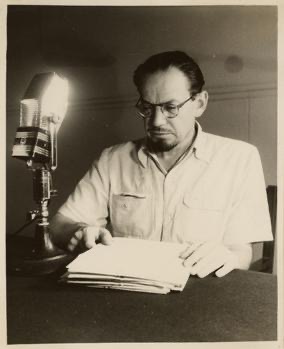
Mohammad Asad addressing Radio Pakistan
People who argue in favour of an Islamic State and hence Sharia state argue that the Prophet himself established a political state which functioned smoothly for almost thirty years after him i.e period of four righteous caliphs. They forget that historically this argument has been challenged by numerous scholars of history and Islam. Al Farabi, a 10th century Persian scholar, argued that the state established at Medina by the Prophet Muhammd was an ideal polity where the Prophet also held the position of King.
Several scholars of Islamic laws disagree. Javed Iqbal, a Jurist from Pakistan and son of poet Mohammad Iqbal, contradicted this position. Javed argued, “in Sura 42: Verse 38 when it is pointed out that Muslims are those who conduct their affairs by mutual consultation”, which proved that the Prophet was never a King. He further wrote, “the Prophet of Islam never claimed himself to be a Prophet-King on the lines of the earlier tradition.
He has not been appointed as such by Allah in the Qur’an as it had happended in the case of Prophet David, who was specifically appointed Allah’s Successor on earth. Nevertheless, in the Qur’an there are numerous commands which have been addressed to the Holy Prophet including the command in Sura 3: Verse 159 i.e. “Consult them in affairs and when thou hast taken a decision put thy trust in Allah.’’
The Islamic state was founded at Medina on the basis of a document of Constitutional nature commonly known as the Contract of Medina (Meesaq-i-Medina). According to the stipulations of this Contract, the contracting parties had agreed to run the Government with the Holy Prophet as the sole arbiter and as the apex of delegated sovereignty in the new state.”
The Quran does not lay down a political system to follow could be deduced from the fact that the Constitution adopted at Medina and a few years later at Mecca, by the Prophet himself, were not the same document. The polity created was according to the circumstances of the time and was not laid down through a Quranic revelation.
Another fact, which should be kept in mind is that the Prophet did not declare a political successor or provided guidelines to rule a state. In view of Javed, “the Holy Prophet by not appointing his successor or suggesting any specific mode had definitely acted in conformity with the spirit of Quranic injunctions on this point.”
Here it must also be noted that the State of Medina established by the Prophet was nowhere near to what several of Modern Muslim thinkers want us to belive. The constitution of Medina provided religious liberty to non-Muslim citizens as well. In words of Professor Mohammd Ilyas, “it (the Constitution of Medina) was the first charter of freedom of conscience and of religious worship in the history of the world”. Another dream which is sold to the Muslim (especially Sunni) masses is that the time of four righteous Caliphs - Abu Bakr, Umar, Uthman and Ali, is representative of the ideal Islamic state. But, which Islamic state are they talking about?
Again these times were not governed by a single principle. In fact, succession in each case was different. Abu Bakr was elected as the first to succeed after the consultations among different tribes. They swore allegiance and thus he became what is known as the first Caliph by Sunni Muslims.
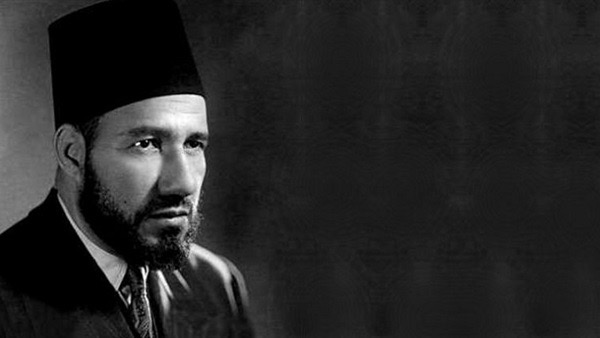
Hasan Al Banna
He told people, “I am not the Caliph of God, but the Caliph of the Apostle of God.” Here it must be kept in mind that though his election was through consultations and by arriving at near consensus, in words of Javed, “in support of their respective claims the Ansar and Mohajirin neither employed any Quranic Injunction nor any direction of the Holy Prophet. The discussion took place in the form of a Conference in order to maintain a dialogue for political consensus to be realized through mutual consultation.”
The system was again changed two years later when Abu Bakr, instead of implementing the same method, nominated Umar as his successor. Later, the system was again changed when Umar appointed council of six people to elect a Caliph and finally Ali held the position through after tribes offered public allegiances.
This brief flashback was to remind the readers that history does not point towards a political system sanctioned by Islam in these early years. Needless to say that this period also witnessed Civil Wars among the Muslims. Since this period Muslims expanded throughout the world and were never ruled by the same political power. A Caliph in Baghdad would have contenders ruling in Spain or Cairo. While, since last 1400 years, a section of Muslims wanted to establish their rule in the name of religion several others took the message of Islam to each corner of the world.
The fact that Islam spread through Indonesia, Malaysia or Bengal as a majority religion without any armed conquest is an evidence into this. Yet, Muslims kept claiming one or the other monarch as the leader of the believers. After the First World War when the Ottoman Sultan of Turkey was disposed Muslims lamented it as the end of the caliphate. Since then, different revivalist movements have stated the establishment of Caliphate as their goal. In 14th century, Ibn Khaldun, a Tunisian Arab scholar, wrote about the position of Islamic State.
“He mentions three distinct views of the idea of Universal Caliphate in Islam: (1) That Universal Imamate is a Divine institution, and is consequently indispensable. (2) That it is merely a matter of expediency. (3) That there is no need of such an institution.” Philosopher poet Mohammad Iqbal also argued that with the changing times polity of Muslims also changes. After Mustafa Kemal Ataturk abolished Caliphate and replaced it with secular democracy, Iqbal welcomed the development.
He wrote, “such is the attitude of the modern Turk, inspired as he is by the realities of experience, and not by the scholastic reasoning of jurists who lived and thought under different conditions of life. To my mind these arguments, if rightly appreciated, indicate the birth of an International ideal which, though forming the very essence of Islam, has been hitherto over-shadowed or rather displaced by Arabian Imperialism of the earlier centuries of Islam.”
Iqbal argued that with the changing times, contexts and world order Islamic polity under the guidance of Quran should be reconstructed. He argued, “equipped with penetrative thought and fresh experience the world of Islam should courageously proceed to the work of reconstruction before them”.
The Muslims, especially English educated youth, need to understand that the idea of Islamic State or Caliphate is nothing but a mirage being sold by politically motivated people with no, or little, basis in history and theology of Islam. Islam is a religion and as Ataturk said, “Our prophet has instructed his disciples to call the nations of the world to Islam; he has not ordered for them to provide for the government of these nations.”
In the present world order, Muslims should work towards humnitarian polity based on democratic polity. In words of Allama Mohammad Iqbal, “Let the Muslim of today appreciate his position, reconstruct his social life in the light of ultimate principles, and evolve, out of the hitherto partially revealed purpose of Islam, that spiritual democracy which is the ultimate aim of Islam.”
